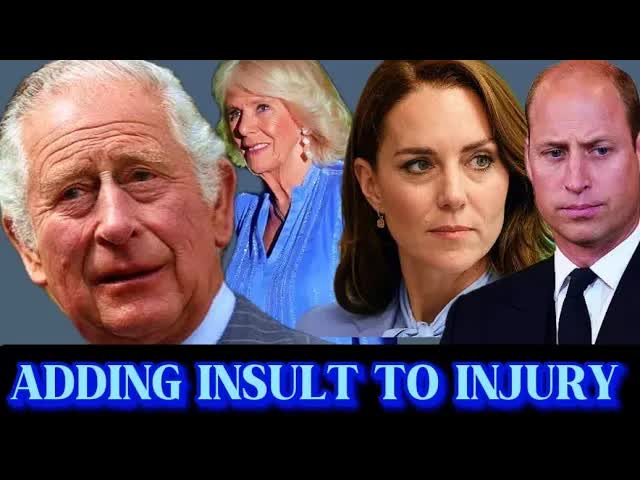The United Kingdom is currently grappling with a severe cost-of-living crisis, where families are finding it increasingly difficult to afford basic necessities like food and heating.
In stark contrast, the monarchy continues to enjoy extravagant funding, raising significant concerns about its relevance and role in contemporary British society.
This financial divide prompts a crucial question: is the monarchy truly serving the people, or merely indulging itself?
Taxpayer money sustains the royal family’s lavish lifestyle, funding everything from grand palaces to opulent ceremonies.
As public services face cuts and communities struggle, the monarchy’s expenses appear not only excessive but also morally questionable.
How can a system that prioritizes royal privilege remain sustainable when so many are in need?
The current dynamics suggest a troubling disconnect between the monarchy and ordinary citizens.
Adding fuel to the fire, the recent 53% hike in the Sovereign Grant feels like a slap in the face to those who are forced to choose between heating their homes and buying groceries.
With inflation on the rise, this increase serves as a glaring reminder of the monarchy’s detachment from the everyday realities faced by the public.
It’s more than just an economic issue; it symbolizes a hierarchy that places royal needs above those of the people.
The monarchy, by its very nature, is undemocratic.
The head of state is determined by lineage rather than the will of the populace.
In a society that values democratic principles, this inherited power seems increasingly outdated and unacceptable.
The absence of accountability to the public creates a scenario where decisions are made without any input from those they affect.
As the gap between the royal family and everyday citizens widens, the perception of the monarchy as an elite institution grows stronger.
Royals bask in luxury while ordinary families struggle to make ends meet.
This chasm not only breeds resentment but also reinforces the notion that the monarchy is out of touch with the common person.
Their public appearances often highlight this disconnect, making it hard for the public to relate to or respect them.
Imagine if the funds spent on maintaining royal extravagance could be redirected to public services.
Hospitals could be upgraded, schools better equipped, and social programs strengthened.
Investing in the welfare of the community rather than the monarchy could lead to a more equitable society.
The potential benefits of such a shift are immense, addressing critical needs that affect millions of lives.
Healthcare, in particular, faces immense pressure, with long waiting lists and understaffed facilities.
By reallocating resources from the monarchy, we could bolster healthcare services and ensure that quality care is accessible to everyone.
Prioritizing the nation’s health over preserving royal heirlooms is not just sensible; it’s essential for the well-being of the population.
Education is another area ripe for investment.
Schools across the UK are experiencing funding cuts, and directing royal funds towards education could empower future generations.
Quality education fosters critical thinking and creativity, laying the groundwork for a strong and prosperous society.
The monarchy’s financial resources could play a pivotal role in achieving this vision.
The housing crisis in the UK further underscores the need for a reallocation of funds.
Many individuals and families struggle to find affordable housing, while the monarchy maintains numerous opulent residences.
Redirecting financial resources towards building affordable homes could provide shelter for those in need and address a pressing societal issue.
The hidden costs of maintaining the monarchy extend far beyond the Sovereign Grant.
Security expenses, estate upkeep, and the costs associated with royal events add up to a staggering sum—money that could be better utilized for public benefit.
Transparency regarding these expenses is crucial for an informed discussion about the monarchy’s future in a time when austerity is prevalent.
Envisioning a future without a monarchy is not only plausible but also appealing.
A republic, where the head of state is elected and accountable to the people, could foster a more inclusive and equitable government.
The potential cost savings from abolishing the monarchy could free up vital resources for public services, creating a society that prioritizes democracy and justice.
It’s time to reclaim our resources.
The funds currently supporting the monarchy’s lavish lifestyle rightfully belong to the people.
Advocacy for a future that prioritizes public services over royal privileges is essential.
Abolishing the monarchy transcends political discourse; it embodies a moral imperative to invest in the well-being of our communities and ensure a fairer future for all.
